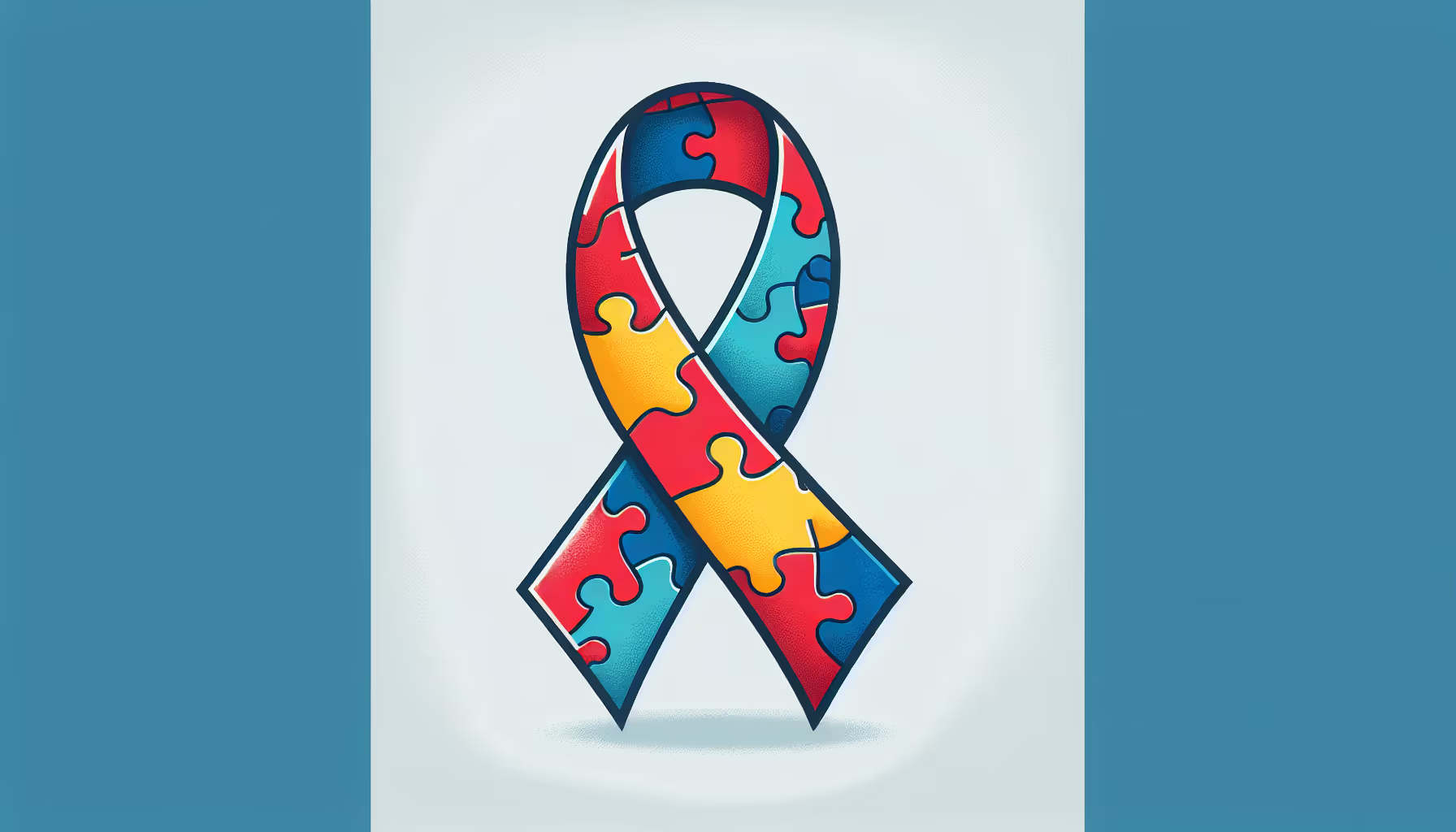Understanding OCD and Autism
To gain a better understanding of obsessive-compulsive disorder (OCD) and autism, it is important to explore their individual characteristics as well as the similarities and differences between them.

OCD and Autism: An Overview
Obsessive-compulsive disorder (OCD) and autism spectrum disorder (ASD) are both neurodevelopmental conditions that can co-occur, but they have distinct diagnostic features, treatments, and outcomes. OCD is characterized by intrusive thoughts that lead to anxiety, along with compulsive behaviors that individuals perform to alleviate their anxiety [2]. On the other hand, autism involves challenges with social interactions, communication, and restricted or repetitive patterns of behavior.
Overlapping Symptoms and Distinctions
While some symptoms of OCD and autism overlap, it is important to differentiate between the two to provide appropriate treatment and support [1]. Both conditions may involve repetitive behaviors, anxiety, and social difficulties, but the underlying processes driving these behaviors are distinct. OCD is characterized by intrusive thoughts and compulsions, whereas autism is primarily characterized by challenges in social communication and restricted or repetitive behaviors.
Distinguishing between OCD and autism can be challenging due to the overlapping symptoms. The core feature of autism, restrictive-repetitive behaviors (RRBs), may resemble OCD symptoms and can sometimes be confused with them. In some cases, RRBs can become intertwined with OCD symptoms, making differentiation complex even for experts. However, there are important distinctions that can serve as a guide, although exceptions may exist due to the heterogeneity of each condition.
Understanding the similarities and differences between OCD and autism is crucial for accurate diagnosis and determining appropriate treatment strategies. By recognizing the distinct features of each condition, healthcare professionals can provide tailored support to individuals with OCD, autism, or both. Additionally, early intervention plays a vital role in improving outcomes for individuals with OCD or autism, highlighting the importance of timely diagnosis and access to appropriate interventions [3].
Prevalence and Comorbidity
When examining the relationship between OCD and autism, it is evident that there is a high prevalence of OCD in individuals with autism. Studies have suggested that the prevalence of OCD in individuals with autism ranges from approximately 17% to 37% [3]. This indicates a significantly higher occurrence compared to the general population.
The link between OCD and autism is complex and multifaceted. Researchers have proposed that the two conditions may share genetic and environmental risk factors, which could help explain the elevated prevalence of OCD in individuals with autism. However, it's important to note that OCD and autism are distinct neurodevelopmental conditions with their own diagnostic features, treatments, and outcomes, even though they can co-occur.
The comorbidity between OCD and autism has been extensively studied. Among individuals diagnosed with OCD, there is a nearly 4-fold higher risk of being diagnosed with autism spectrum disorders (ASD) later in life. Conversely, individuals first diagnosed with ASD have a 2-fold higher risk of a later diagnosis of OCD. This suggests a bidirectional relationship between the two conditions.
Furthermore, familial studies have shown that parental OCD increases the risk for ASD in their offspring, indicating shared familial risks. However, it's important to note that the risk for ASD after parental OCD is lower compared to the risk after parental ASD diagnosis.
To summarize the prevalence and comorbidity of OCD and autism:
Understanding the relationship between OCD and autism is crucial for accurate diagnosis and appropriate treatment approaches. By recognizing the comorbidity and shared risks, healthcare professionals can provide tailored interventions and support to individuals with both conditions.
Differential Diagnosis and Treatment
To accurately address the symptoms and provide appropriate support for individuals with OCD and autism, it is crucial to differentiate between the two conditions. Although some symptoms of OCD and autism overlap, there are distinct characteristics that can help distinguish between them. Tailored treatment approaches can then be implemented based on the specific diagnosis.
Differentiating Between OCD and Autism
While both OCD and autism are associated with repetitive behaviors, they differ in their core features. OCD is characterized by intrusive thoughts and compulsive behaviors, whereas autism involves challenges with social interactions, communication, and restricted or repetitive patterns of behavior. It is important for healthcare providers to accurately identify and differentiate between the two conditions to provide appropriate treatment and support.
Key distinctions between OCD and autism include:
OCDAutismIntrusive thoughts and anxietySocial communication difficultiesCompulsive behaviorsRestricted or repetitive patterns of behaviorFocus on specific obsessions or fearsChallenges with social interactions
Tailored Treatment Approaches
The treatment approaches for OCD and autism can vary significantly. OCD typically responds well to cognitive-behavioral therapy (CBT) and medications, such as selective serotonin reuptake inhibitors (SSRIs) that help manage anxiety and reduce obsessive thoughts. On the other hand, autism benefits from autism-specific therapies and interventions that focus on improving social skills, communication, and behavior management.
For individuals who have both OCD and autism, a tailored treatment plan that addresses both conditions concurrently is essential. This involves a multidisciplinary approach, involving various healthcare professionals, to provide comprehensive care. The treatment plan may include a combination of CBT, medication management, autism-specific therapies, and individualized interventions to effectively manage symptoms and improve overall quality of life [3].
The importance of seeking evaluations by professionals well-versed in both OCD and autism cannot be overstated. Accurate diagnosis is crucial to ensure that individuals receive the appropriate treatment and support tailored to their specific needs. Misdiagnosis can lead to ineffective or inadequate treatments, exacerbating symptoms or failing to address the root issues effectively. Precision in diagnosing and differentiating between OCD and autism is vital to provide the best possible care for individuals who may have both conditions simultaneously.
By understanding the distinctions between OCD and autism and implementing tailored treatment approaches, individuals with these conditions can receive the support they need to manage their symptoms and improve their overall well-being. It is important to recognize the complexity of the relationship between these conditions and continuously advance our understanding, evaluation, and intervention strategies to better support individuals and their families.
Managing OCD and Autism
When it comes to managing OCD and autism, a multidisciplinary approach to treatment is often recommended. By addressing the unique needs and challenges presented by both conditions, individuals with comorbid OCD and autism can receive comprehensive care that improves their overall quality of life.
Multidisciplinary Approach to Treatment
A multidisciplinary approach involves collaborating with various healthcare professionals to develop an individualized treatment plan. This team may include psychologists, psychiatrists, behavioral therapists, occupational therapists, and speech-language pathologists. Each professional brings their expertise to the table, ensuring a holistic and tailored approach to treatment.
The multidisciplinary team works together to assess the individual's symptoms, strengths, and challenges. They then develop interventions and strategies that target both OCD and autism symptoms. This collaborative approach allows for a comprehensive understanding of the individual's needs and ensures that interventions are coordinated and consistent across different areas of their life.
Addressing Unique Needs and Challenges
Individuals with comorbid OCD and autism have unique needs and challenges that must be addressed in their treatment plan. OCD involves intrusive thoughts leading to anxiety, while autism comprises social communication difficulties and repetitive behaviors. As a result, the treatment approach should be tailored to address these specific symptoms.
Cognitive-behavioral therapy (CBT) is often effective in treating OCD, and modifications can be made to make it more suitable for individuals with autism. CBT helps individuals identify and challenge their obsessive thoughts and develop healthier coping mechanisms. Additionally, autism-specific therapies and interventions can be incorporated to address social communication difficulties and repetitive behaviors associated with autism.
By integrating various therapeutic approaches, individuals with comorbid OCD and autism can receive a comprehensive treatment plan that caters to their unique needs. This individualized approach maximizes the potential for symptom reduction, improved functioning, and enhanced overall well-being.
It's important for healthcare providers to be aware of the potential comorbidity of OCD and autism and to accurately diagnose and develop appropriate treatment approaches. Early recognition and treatment can significantly improve outcomes for individuals with both conditions. As awareness and understanding of the relationship between OCD and autism continue to grow, the future of managing these conditions looks promising, with improved outcomes and support for individuals and their families.
Recognizing Symptoms and Seeking Help
When it comes to understanding the relationship between obsessive-compulsive disorder (OCD) and autism, it's crucial to recognize the symptoms and seek appropriate help. Identifying OCD in individuals with autism and recognizing the importance of early intervention can greatly contribute to better outcomes and improved quality of life.
Identifying OCD in Autism
In some cases, children with autism may also exhibit symptoms of OCD. OCD is characterized by recurring thoughts and fears that lead individuals to engage in repetitive behaviors or rituals. For example, a child with OCD may have excessive worries about germs and feel compelled to wash their hands repeatedly CDC.
It's important to note that while there may be overlapping symptoms between OCD and autism, there are also distinctions to consider. Children with autism may struggle to understand another person's feelings, while children with OCD may experience excessive worry and appear scared or upset CDC. Additionally, children with autism may exhibit behavior problems such as aggression or out-of-control tantrums, while those with OCD may have difficulty paying attention and staying focused CDC.
If you suspect that your child with autism may also be experiencing symptoms of OCD, it is essential to consult with a healthcare professional. They can conduct a comprehensive evaluation to determine the presence of OCD symptoms and provide appropriate guidance and treatment options.
Importance of Early Intervention
Early intervention plays a crucial role in addressing both autism and OCD in children. Identifying and addressing OCD symptoms in individuals with autism at an early stage can help prevent the exacerbation of symptoms and improve overall functioning.
Early intervention strategies may include a combination of behavioral therapy, medication (if deemed necessary by a healthcare professional), and support from a multidisciplinary team. Working with professionals who specialize in autism and OCD can provide tailored interventions that address the unique needs and challenges associated with both conditions.
By seeking help early, parents and caregivers can provide their children with the necessary support and resources to manage OCD symptoms effectively. Additionally, early intervention can help individuals with autism and OCD develop coping mechanisms and strategies to navigate their daily lives more effectively.
It's important to remember that every individual is unique, and symptoms may vary. If you suspect that your child with autism may be experiencing symptoms of OCD, don't hesitate to reach out to healthcare professionals for guidance and support. Early intervention can make a significant difference in managing symptoms and improving the overall well-being of individuals with autism and OCD.
Future Research and Outlook
As our understanding of OCD and autism continues to evolve, ongoing research and advancements in interventions hold promise for improving the lives of individuals with these conditions. The future outlook for both understanding and treating OCD in the context of autism is positive, with a focus on advancing interventions and supporting individuals and families.
Advancing Understanding and Interventions
Scientific and clinical communities are devoting more attention to the study of OCD and its treatment in autistic individuals. This increased focus is expected to lead to improved outcomes for both children and adults with a specific emphasis on supporting family members. The goal is to gain a deeper understanding of the unique challenges faced by individuals with autism who also experience OCD symptoms.
Researchers are working to clarify the boundaries between restrictive-repetitive behaviors (RRBs) of autism and OCD symptoms. While there may be overlapping features, important distinctions exist that can serve as a guide in diagnosis and treatment. It is important to acknowledge the heterogeneity of each condition, as exceptions may exist [5].
Future studies will further explore the shared etiological mechanisms between OCD and autism spectrum disorders. The high comorbidity, sequential risk, and shared familial risks highlight the potential for partially shared underlying causes. This deeper understanding of the connections between these conditions may pave the way for more targeted and effective interventions.
Supporting Individuals and Families
The treatment of OCD in individuals with autism spectrum disorders requires a multidisciplinary approach. As we look to the future, there is a growing recognition of the need to address the specific ways that OCD manifests and affects individuals with autism. Additionally, the role of the family in treatment response is being increasingly emphasized.
While there is limited evidence regarding the efficacy of cognitive-behavioral therapy (CBT) for OCD in individuals with autism, future studies will aim to examine not only its effectiveness but also the ways in which OCD impacts individuals with autism. These studies will also explore the role of the family in treatment response, recognizing the importance of family support and involvement in the treatment process.
Supporting individuals and families affected by OCD and autism will remain a priority moving forward. As research progresses, interventions can be tailored to meet the unique needs and challenges faced by individuals with these conditions. The ultimate goal is to provide effective and comprehensive support that enhances their overall well-being.
By advancing our understanding of both OCD and autism and developing evidence-based interventions, we can work towards improving the lives of individuals with these conditions and providing the necessary support for their families. The future holds promise for continued growth and progress in the field of OCD and autism research, with the aim of enhancing the quality of life for those affected.
References
[2]:
[3]:
[4]:
[5]:
[6]:
[7]:
[8]:
[9]:












